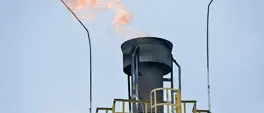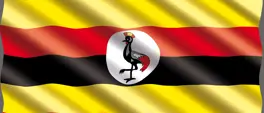Jihadist insurgency leaves Burkina cotton farmers hanging by a thread
AFP
13 August 2025 | 10:22Many farmers have fled the violence or been forced to leave their crops untended as the threat of ambush made them too dangerous to pick.

Picture: Pixabay.com
ABIDJAN - Laurent Koadima yearns for the days when his cotton farm in Burkina Faso allowed him to provide for his family, before advancing jihadists forced them to make sacrifices.
"Before, we were envied because cotton was a good business and the harvests were good," the 48-year-old said. "Today, we struggle to live."
Koadima is but one of many in Burkina Faso, among Africa's top producers of cotton, whose output has been decimated due to jihadist fighters stalking the Sahel nation for more than a decade.
Many farmers have fled the violence or been forced to leave their crops untended as the threat of ambush made them too dangerous to pick.
As a result, cotton production fell by more than a quarter in one year, from 386,794 tonnes in 2023 to 286,623 in 2024, according to official figures.
"These past two or three years, it's been very tough... the security situation means that we've lost much good farmland," Koadima said.
"I've trouble tending to my family's needs as last year I was unable to harvest, so currently I'm doing odd jobs and a bit of trading," he added.
"Two of my children have had to drop out of school."
HUNDREDS OF FARMERS FIRED
Around four million people out of Burkina Faso's population of 23 million owe their livelihoods to cotton, either directly or indirectly.
Issa Lompo's fields are his sole source of income, which the 38-year-old farmer needs to take care of his seven children.
But his eastern region has been in the firing line since 2018, falling prey to attacks by Islamists affiliated with Al-Qaeda or the Islamic State group.
Though the ruling junta has pledged to crack down on the unrest since seizing power in a coup in September 2022, its military rulers have so far proven unable to stem the jihadist tide.
"In four years, we've lost more than 32,000 cotton farms in the region due to insecurity," Lompo said, adding that those who lost their fields have turned to "other professions, like herding or business".
One such series of attacks at the end of June killed seven police officers and a soldier near Fada N'Gourma, the regional capital to which many cotton farmers have sent their families for safety.
The town is home to Socoma, one of Burkina Faso's three big cotton-farming companies.
At one point, its farmers produced an average of 80,000 tonnes of cotton a year.
But after three years of minimal harvests, Socoma announced in July that it would fire every one of its hundreds of employees "for economic reasons".
Its 2024 production had plummeted to 3,000 tonnes.
'TAKING A BEATING'
At its general assembly in late June, the National Union of Cotton Producers of Burkina Faso sounded the alarm over the obstacles the violence was creating to the transport and harvest of cotton.
Before that, Burkina Faso's Interprofessional Cotton Association had warned in 2023 about the difficulty of delivering agricultural supplies.
But it also bemoaned a rise in sea transport costs, a key issue for a landlocked country which exports nearly all of its cotton abroad, mostly to Asian countries.
"The industry is taking a beating year after year," lamented Moussa Barro, another producer.
According to Burkina Faso's commerce ministry, cotton accounts for four percent of the country's national output and around 14 percent of its export revenues.
To help shore up its ailing cotton farmers, Burkina Faso's junta has provided subsidies worth five billion CFA francs ($9 million) for agricultural supplies such as seeds, fertilisers and equipment.
The jihadist insurgency has killed more than 26,000 people, both civilians and soldiers, in Burkina Faso since it began more than 10 years ago.
Over half of those deaths have taken place in the past three years.
Get the whole picture 💡
Take a look at the topic timeline for all related articles.

















